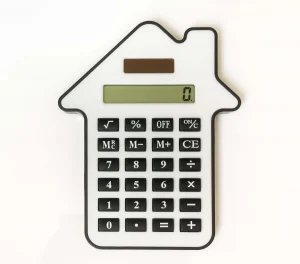During this difficult time, and with many people facing the prospect of reduced income, it’s good to know that mortgage lenders are now offering a 3-month payment holiday as a temporary measure to help people affected by the coronavirus crisis.
Most mortgage lenders have set up web pages containing helpful information and guidance about the payment holiday. Most of the largest providers have developed online mortgage payment holiday request forms, e.g. Barclays, Santander, Nationwide, RBS, and HSBC, but others may need you to call them to discuss your needs.
Am I eligible for a payment holiday?
UK Finance, which is the trade body for banks and other mortgage lenders, has put out a statement to help people understand if they are eligible. Their statement confirms:
“To be eligible for a payment holiday you will need to be up to date on your mortgage payments.
If you are a buy-to-let landlord, it will be available if your tenants have lost income because of the impact of Covid-19.
There are a number of options available and payment holidays aren’t always the most suitable solution for everyone. By speaking to your mortgage provider, they can tailor the best option for you.”
How does a payment holiday work?
 The terms of the payment holiday will vary depending on who your mortgage is with.
The terms of the payment holiday will vary depending on who your mortgage is with.
What we do know is that:
- During the 3-month period you won’t make any payments.
- It shouldn’t matter if you’ve already taken a payment holiday under the normal terms of your mortgage.
- Interest will still be applied during your payment holiday
At the end of your payment holiday, the lender will either:
- Increase your payment to catch up the missed payments
- Add the payments to the end of your mortgage – this will increase the term
If you are worried about how a payment holiday would affect the payments and term of your mortgage, this mortgage calculator will give you an idea of how much you’d have to increase, how the term would be affected, and how much extra it will cost you.
If you already have arrears with your mortgage, your lender might not offer you a payment holiday, but they will work with you to find a solution which works for you. You will probably need to speak with them to discuss your options.
Will my credit score be affected?
The FCA has issued guidance to mortgage providers to ensure that, if you take a payment holiday, it will not negatively impact on your credit score.
Should I cancel my direct debit?
No – not unless you’ve been told to by your lender. You’ll need to get agreement for the mortgage payment holiday before you stop paying, otherwise it may be recorded as an unauthorised missed payment and this will affect your credit file.
Should I apply for a payment holiday?
You should only ask for a payment break if you really need one because you’ve been affected by coronavirus, but if you think that you do, consider the long-term impact and your other options.
For some it will be an obvious choice, and a well-needed lifeline, but for others e.g. those with a high mortgage balance, high interest rate or a long time remaining on their mortgage – where the payment holiday may be more costly – it may be worth seeing if you can cut back in other areas and carry on paying your mortgage. For hints on where you might be able to cut costs during the coronavirus crisis, visit our information page
If you were already struggling with your mortgage before any impact from coronavirus, speak to your lender. Deferring the issue by 3 months may not be the best course of action for you and your lender may be able to suggest something else.
If you are struggling with other debts which are causing you to miss mortgage payments, you can try to contact your creditors and ask for a payment holiday. If you were already struggling before coronavirus, you may benefit from getting debt advice. to see if there are any options available to help deal with your unsecured debts.


